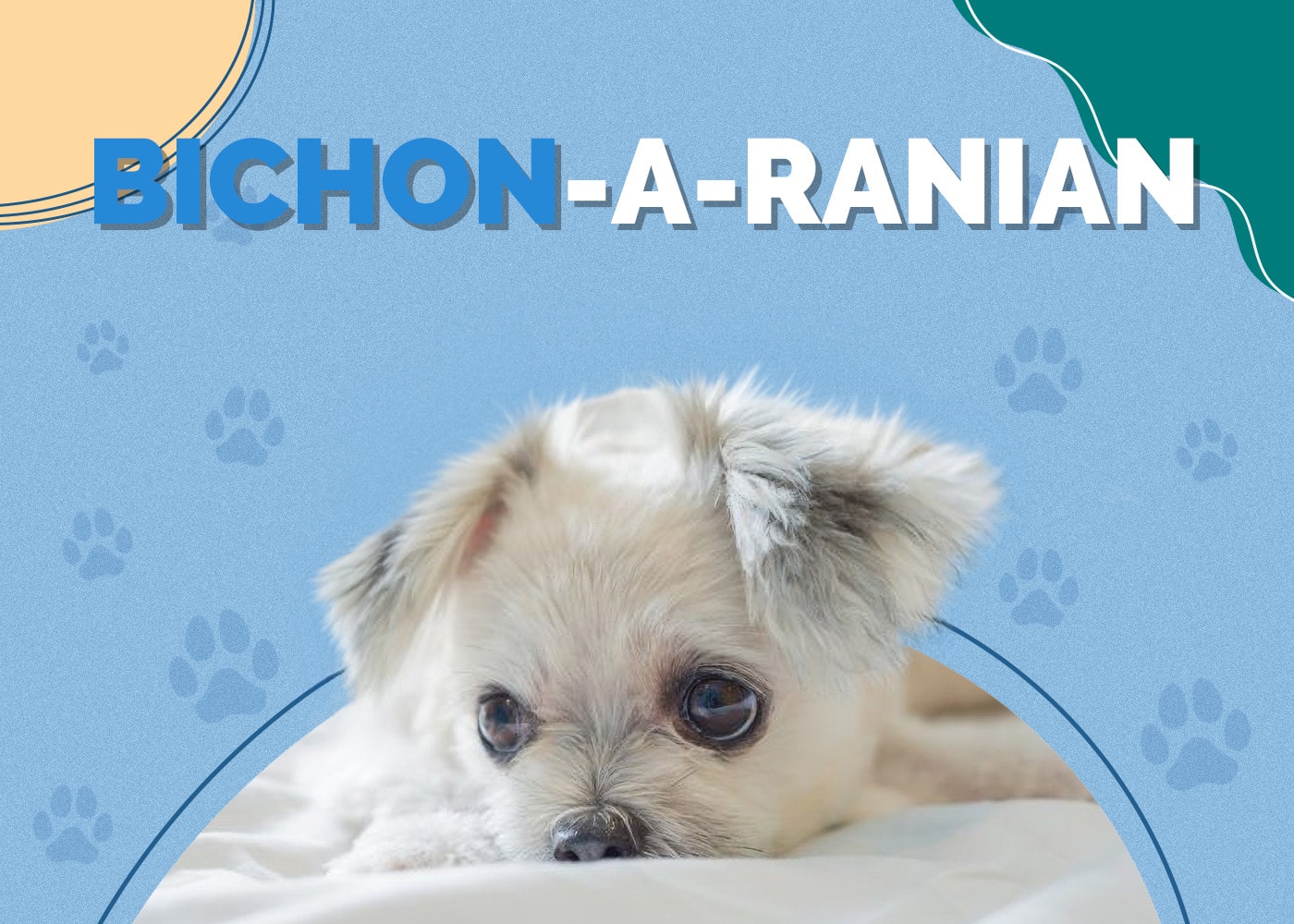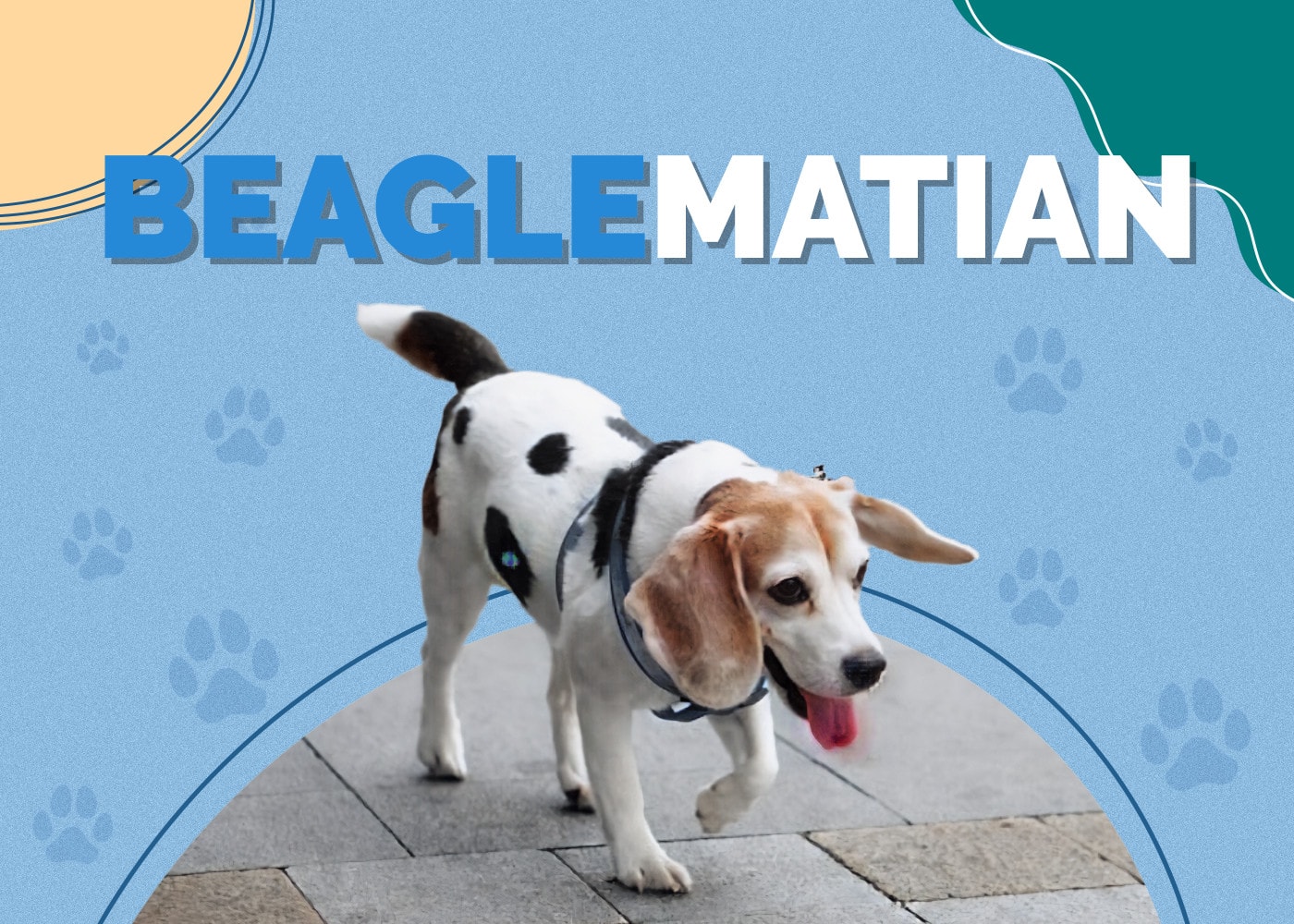Shepadoodle: Info, Pictures, Characteristics & Facts

Updated on
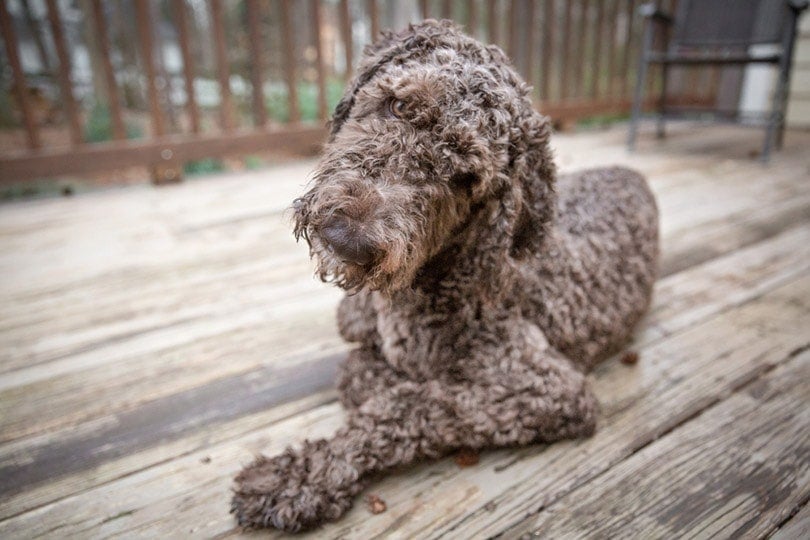
| Height: | 22 – 28 inches |
| Weight: | 50 – 90 pounds |
| Lifespan: | 12 – 14 years |
| Colors: | White, tan, black, brown, grey |
| Suitable for: | Active families with time to spend, those who love the outdoors |
| Temperament: | Energetic, hard-working, loyal, intelligent |
If you’re an active family looking for an ideal furry companion, we’ve got the perfect dog for you. The Shepadoodle is a cross between a German Shepherd and a Standard Poodle. The combination of these two highly intelligent breeds nets another very smart dog.
The Shepadoodle is highly trainable and very loyal to its family. It’s an active dog that loves having a job to do. Keep reading to learn more about this rare breed and whether or not it would be a good choice for your family.
German Shepherd Poodle Puppies
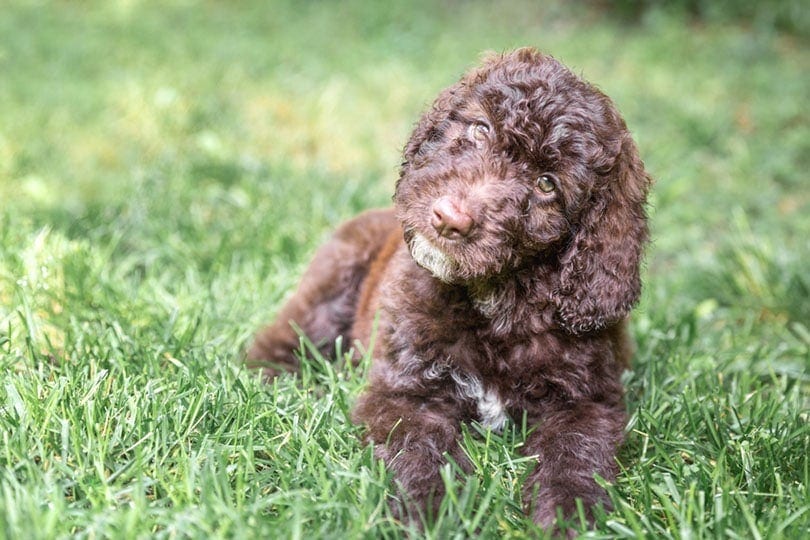
There are very few Shepadoodle breeders in the United States. Because of this, you can expect to pay quite a bit of money for a Shepadoodle puppy. You also need to make sure that you’re working with a reputable breeder. If you aren’t able to find a puppy from a breeder, you may be able to find a Shepadoodle in an animal shelter near you.
The other avenue to find for one of these dogs is through a breed-specific rescue. You can check both German Shepherd and Poodle rescue organizations to see if they might have one of these rare hybrids available.
3 Little-Known Facts About the Shepadoodle
1. They were originally developed by the U.S. Army in the 1960s.
The U.S. Army wanted to create a dog that was both low-shedding and intelligent. Since both Standard Poodles and German Shepherds are very intelligent, the combining of the two was expected to yield an easily trainable dog. They were correct and the Shepadoodle was born.
2. The Shepadoodle’s weight varies significantly depending on which parent’s genes are dominant.
With a weight range of 50 to 90 pounds, you never know what you’re going to get with a Shepadoodle. If the German Shepherd parent has the more dominant genes, your dog will be significantly heavier than if the Poodle parent is dominant.
3. They are not heavy shedders, despite their long, curly coats.
If you are sensitive to dog hair, the Shepadoodle might be a good choice. They don’t tend to be heavy shedders.
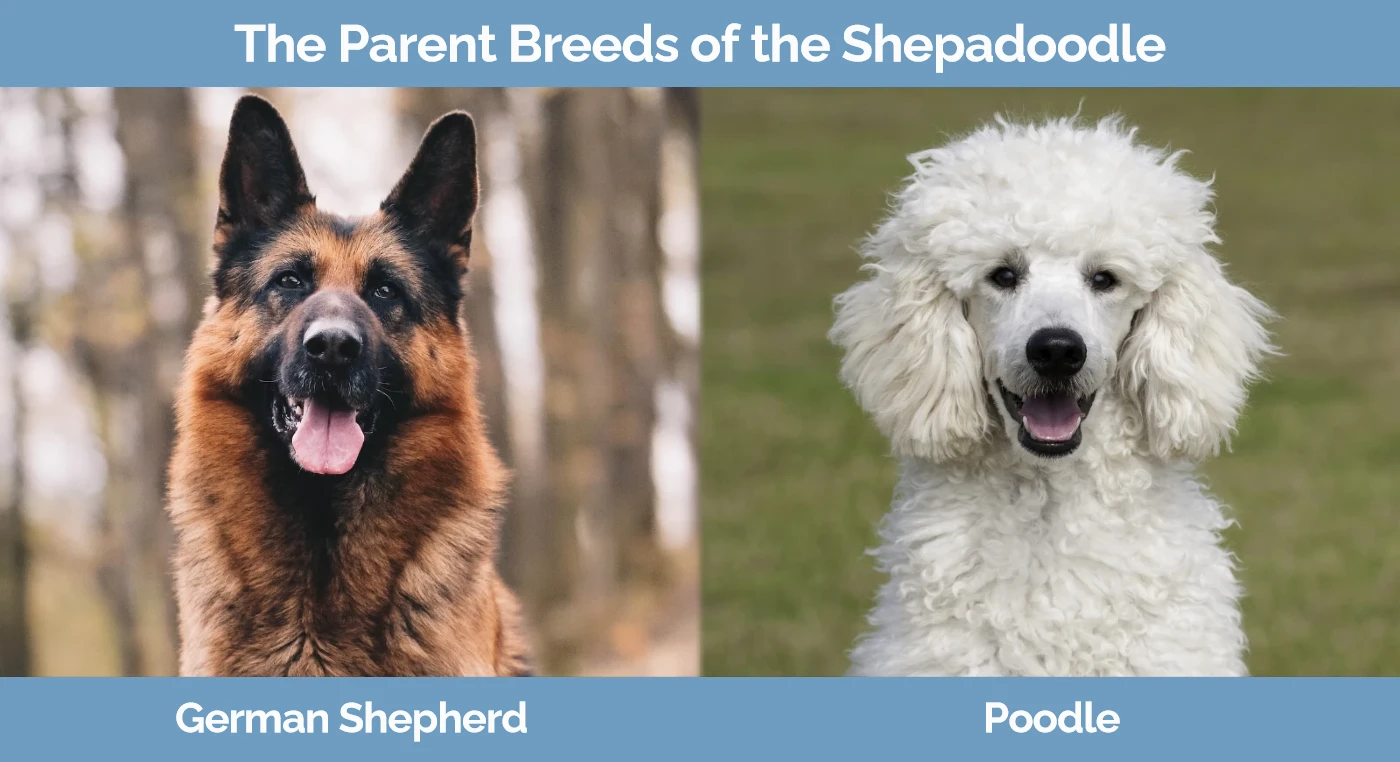
Shepadoodle Temperament & Intelligence
As a cross of two incredibly intelligent dogs, the German Shepherd and a Standard Poodle, the Shepadoodle is also very bright. They are active, trainable, and like having a job to do, even if that job is just to protect your family.

Are These Dogs Good for Families? 👪
Yes, the Shepadoodle is a great dog for the right family. They are loyal, protective, and affectionate. The ideal family for a Shepadoodle is active and enjoys spending time outdoors. The Shepadoodle also thrives when they receive plenty of positive attention. Families that are away from home all day won’t be a good choice for these dogs as they are known to become depressed and destructive when they don’t have enough interaction with their people.
Since the Shepadoodle is such a large dog, families with very small children will want to ensure their dog is properly trained and that the children know how to act around dogs. While they aren’t aggressive toward children, they can accidentally knock them over when playing.
Does This Breed Get Along With Other Pets?
Like with most dogs, introducing a Shepadoodle to your other pets at a young age is the best way to ensure that they’ll get along. In general, Shepadoodles can be friends with most other pets in the household. Training is the key to long, healthy, happy relationships between your pets. Once trained, Shepadoodles get along well with other dogs, cats, and other family pets.
Things to Know When Owning a Shepadoodle:
Before committing to any pet, you need to make sure that you’ve done your homework and understand its needs. All pets have specific requirements for feeding, exercise, training, grooming, and health. Taking time to learn about these needs before you get a new dog will ensure that you get the right dog for your family and that you can keep that dog happy. Some of the specifics about caring for a Shepadoodle are included here:
Food & Diet Requirements 🦴
Shepadoodles are a large breed. Keep in mind that their adult weight can vary widely depending on the parent they most closely take after. However, their active nature means even slightly smaller dogs will need plenty of food. In general, most Shepadoodles will consume between 3-4 cups of dog food per day. It’s important to discuss your dog’s specific needs with your veterinarian and to adjust its feeding as the dog grows.
Exercise 🐕
Shepadoodles need exercise and plenty of it. They won’t be happy if they aren’t given enough exercise time every single day. Long walks, hikes, runs, and games of fetch will all help burn off some of their boundless energy. Families with a large, fenced yard would be a great choice for a Shepadoodle.
Furthermore, the Shepadoodle needs to be around you even when they aren’t engaging in exercise activities. They don’t do well when they’re left alone for long stretches. They are easily bored and will become destructive without something to do. When you do need to leave your dog alone, make sure that you’ve supplied it with plenty of puzzle toys and other things to keep its mind occupied.
Training 🎾
Their high levels of intelligence make Shepadoodles very easy to train. They love learning and having a purpose. Because of this, they do well in agility training or obedience courses. It is recommended that they receive training from an early age since the Shepadoodle is a large and strong dog. The earlier you begin training them, the better habits and behavior they’ll develop.
Grooming ✂️
The Shepadoodle isn’t a heavy shedder. However, they will need frequent grooming. Their long, curly coat makes it difficult to spot fleas and ticks on their skin. You’ll want to check carefully when grooming your dog to make sure they aren’t carrying any of these pests. You’ll also want to brush them frequently to prevent their pretty coats from matting. Regular bathing will also help keep their skin free from parasites and their hair silky and tangle-free.
Like all dogs, the Shepadoodle requires regular tooth brushing and nail clipping as well. It’s especially important to brush their teeth several times per week to prevent dental diseases and infections.
Health and Conditions 🏥
The Shepadoodle is typically a healthy breed. There are few common health concerns these dogs are prone to. The biggest factor in their health is always going to be how well they are cared for. Maintaining a healthy weight, regular veterinary visits, and proper exercise will go a long way to ensuring that your dog has a long and healthy life.
- Tick and flea bites
- Hip dysplasia
- Bloat
Minor Conditions:
- Tick and Flea Bites – The thick, curly hair of the Shepadoodle makes it difficult to see fleas and ticks on your dog. You’ll want to brush them frequently and carefully examine their skin for any pests. Regular bathing may also help eliminate flea and tick issues.
Serious Conditions:
- Hip Dysplasia – This common disorder impacts the joints of many dog breeds, typically the larger breeds. It can be very painful and can limit your dog’s mobility as they get older.
- Bloat – This is a potentially fatal problem that occurs when your dog’s stomach fills with gas and twists. It is often caused by a dog eating too much too quickly.
Male vs Female
There are no noticeable differences between male and female Shepadoodles. Sometimes the males might be a little heavier, especially if the German Shepherd parent is the dominant one. When it comes to temperament, intelligence, and trainability, both sexes are equal. They need the same amount of care, time, and exercise to thrive.
Final Thoughts
Shepadoodles can be difficult to find from a breeder. If you do have one, you should be prepared to give your dog what it needs. The Shepadoodle requires a family that will give them the exercise, training, and mental stimulation they need to thrive. However, if you do care for your Shepadoodle properly, you’ll be rewarded with years of loving, loyal companionship.
Related Reads:
Featured Image Credit: Holly Michele, Shutterstock



